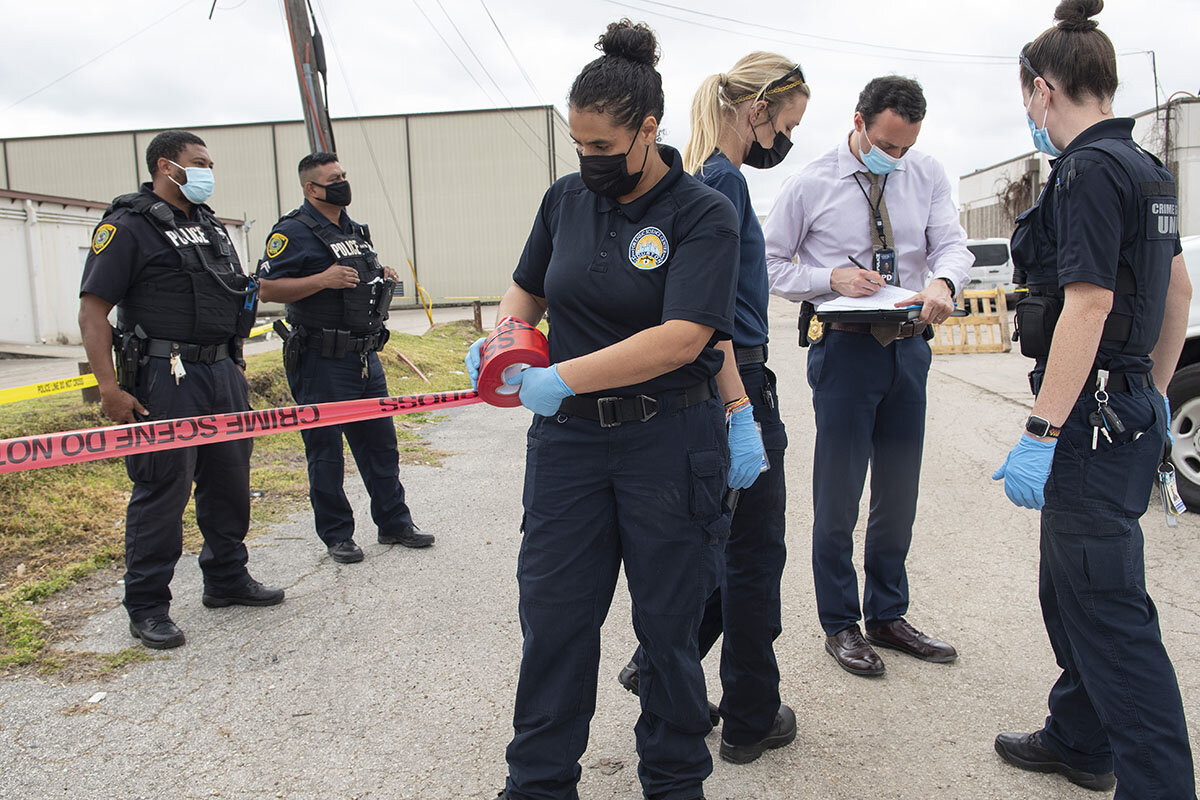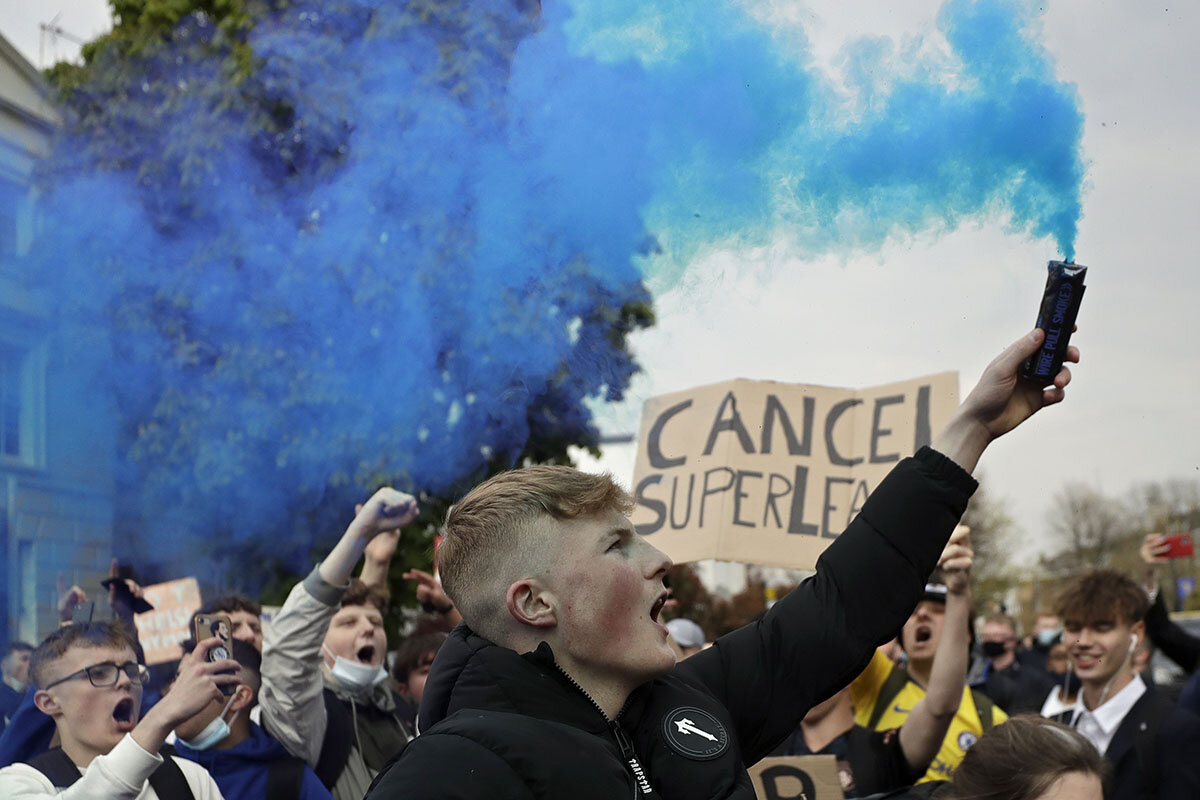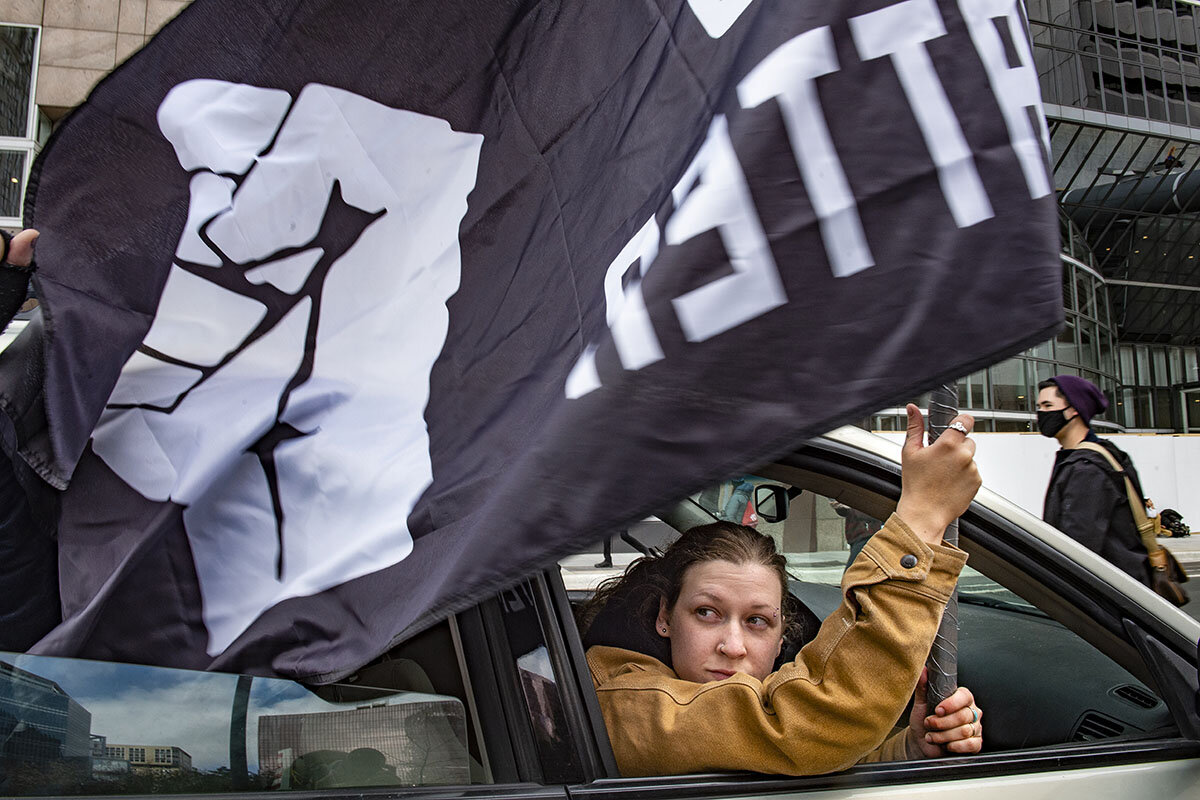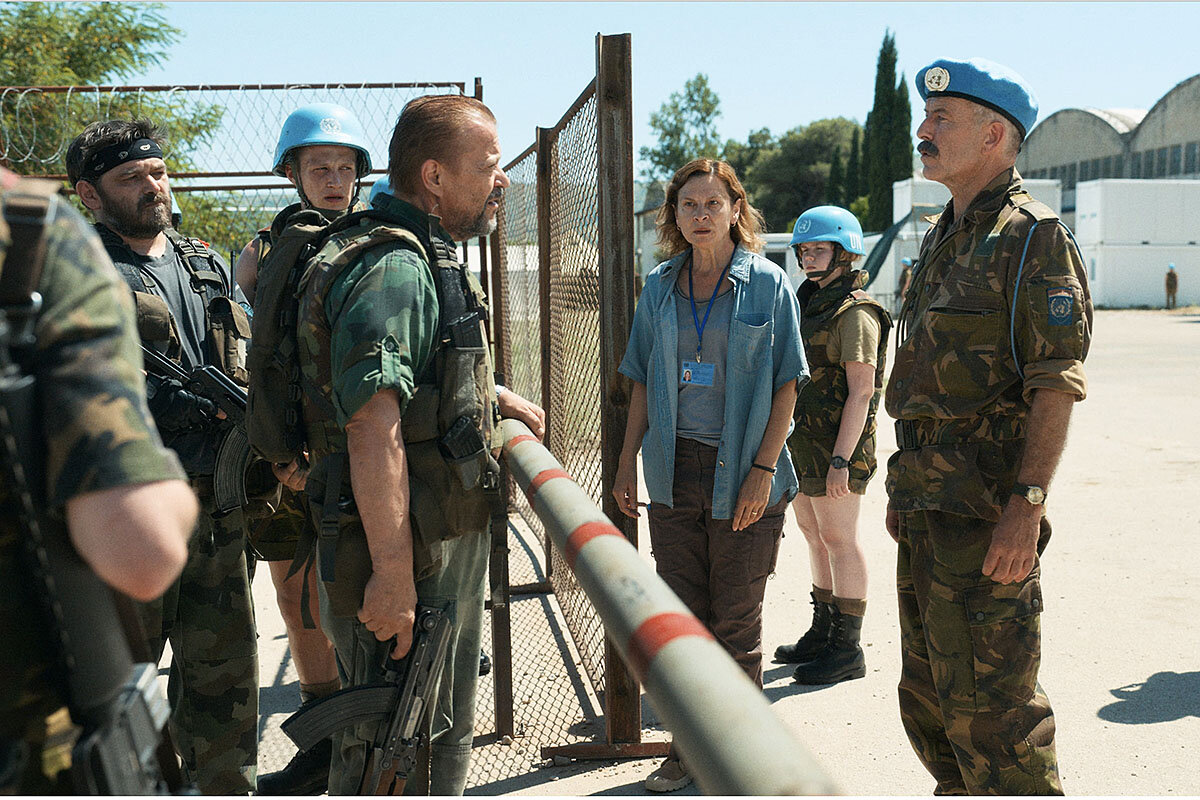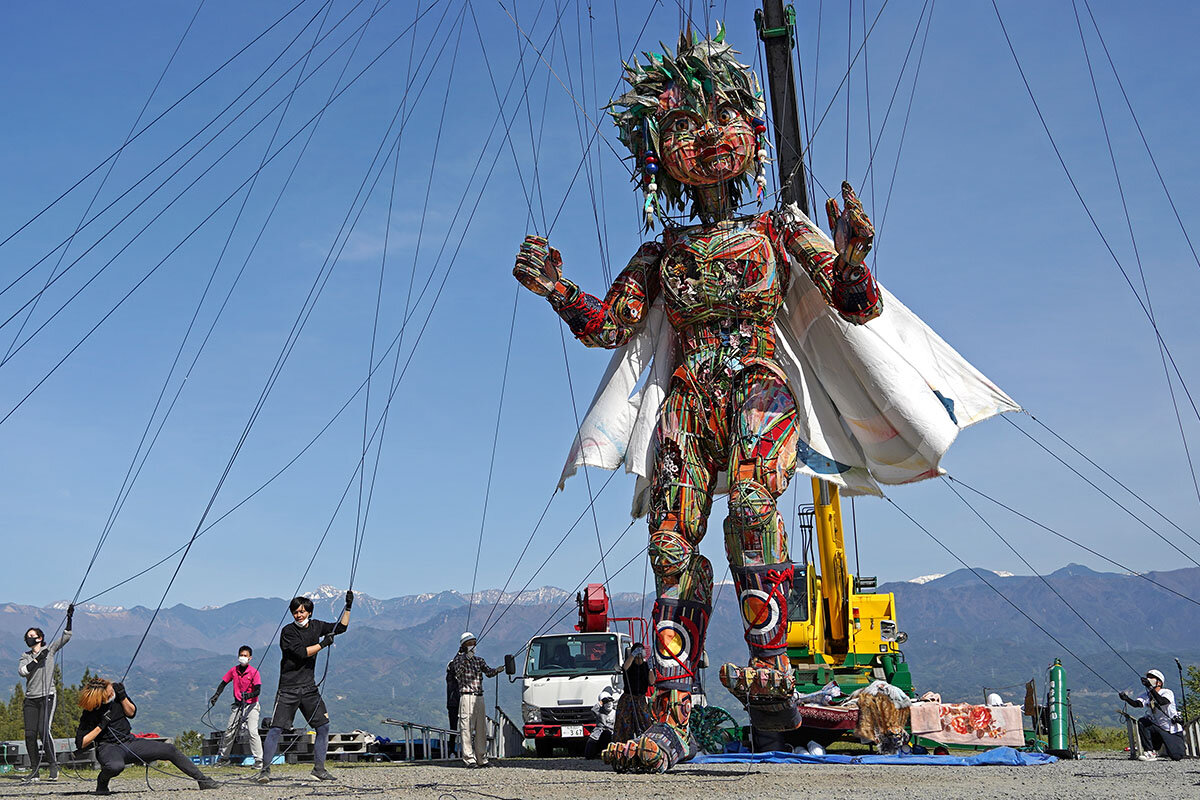Hollywood portrays forensic science as nearly infallible. It isn’t. Now a Houston lab has become a model of reform, boosting trust in this critical part of the justice system.
Monitor Daily Podcast
- Follow us:
- Apple Podcasts
- Spotify
- RSS Feed
- Download
 Noelle Swan
Noelle Swan
Crime dramas have been around since the early days of television. The genre has since become ubiquitous, with shows about law enforcement making up nearly 20% of all scripted programming in the 2019-20 network television season. That’s not to mention the endless array of cable and streaming offerings.
This steady diet of crime dramas has left many viewers with a distorted view of the justice system. On screen, state-of-the-art crime labs regularly produce definitive forensic evidence in a matter of hours, inflating the public’s expectations. One survey found that nearly half of jurors expect every criminal case to include some kind of scientific evidence. In reality, most police departments do not have access to the kind of forensic analysis seen on TV. Even if they did, forensic science is never going to be as certain as screenwriters make it seem.
The public has discovered these limitations the hard way. Hundreds of convictions have been overturned due to faulty forensic evidence. Some forensic investigators and technicians have exploited public faith in their discipline to pass off shoddy work.
In today’s lead story, the Monitor’s Henry Gass introduces us to a forensic scientist in Houston who is leading the charge to lift his profession up to the standards that the public has come to expect. Peter Stout knows better than most how messy investigations can be. Perfection may never be a reasonable expectation, but he sees forensic science as the best tool for finding “a just result.”




